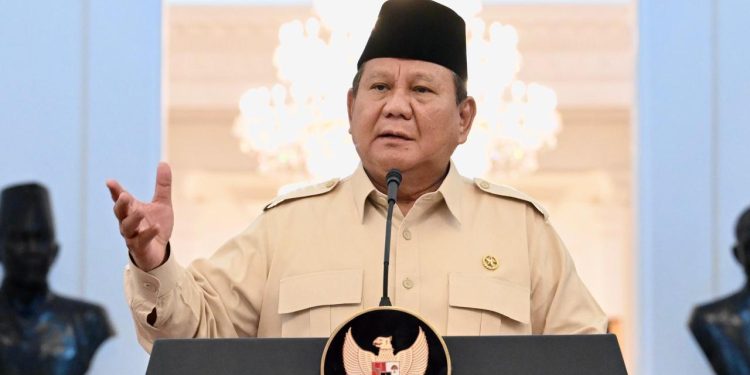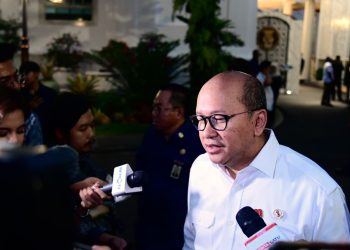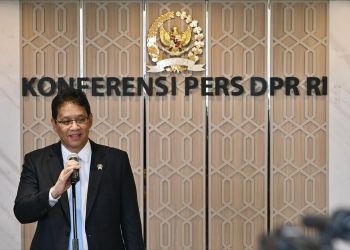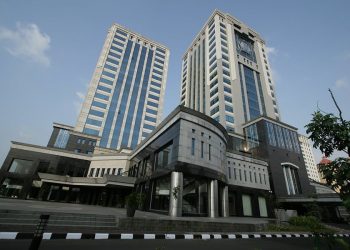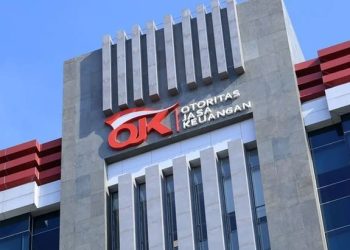Jakarta, Indonesia Sentinel — Indonesian President Prabowo Subianto has announced a new policy mandating the full retention of foreign exchange earnings from natural resource exports (DHE SDA) within the domestic financial system. Under the new regulation, 100% of foreign exchange earnings must be deposited in national banks for a minimum period of 12 months.
The policy was unveiled at the Presidential Palace in Jakarta on Monday (February 17, 2025) and is outlined in Government Regulation (PP) No. 8 of 2025 concerning Foreign Exchange from the Exploitation, Management, and Processing of Natural Resources.
“To strengthen and maximize the impact of managing foreign exchange earnings from natural resource exports, the government has established Government Regulation No. 8 of 2025,” Prabowo stated in a press conference.
The new regulation set to take effect on March 1, 2025 and mandates all DHE SDA to be deposited in special accounts within Indonesian banks. The requirement applies to the mining, plantation, forestry, and fisheries sectors, while the oil and gas sector is exempt.
For the oil and gas sector, the previous regulation remains in effect, requiring 30% of foreign exchange earnings to be retained domestically for at least three months.
Foreign Exchange Earnings (DHE SDA)
DHE SDA refers to foreign exchange generated from the export of goods derived from the exploitation, management, and processing of natural resources. According to Kompas, exporters with a minimum export value of $250 under the Export Declaration (PPE) must deposit their foreign exchange earnings in a special account.
Under the new regulation, exporters must place 100% of their foreign exchange earnings in designated national bank accounts for at least 12 months, an increase from previous requirements.
Government Regulation (PP) No. 36 of 2023 previously allowed DHE SDA deposits in special accounts at the Indonesian Export Financing Institution or banks engaged in foreign exchange transactions.
These funds could also be placed in banking instruments, financial instruments issued by the Indonesian Export Financing Institution, or instruments issued by Bank Indonesia (BI).
New Instruments for DHE SDA Placement
Bank Indonesia has introduced new instruments for the placement of foreign exchange from natural resource exports. “Bank Indonesia will expand and diversify instruments for placing foreign exchange reserves,” Governor Perry Warjiyo stated during a press conference, as reported by Antara.
These instruments include Bank Indonesia Foreign Exchange Securities (SVBI), Bank Indonesia Foreign Exchange Sukuk (SUVBI), and an expansion of foreign exchange swap (FX swap) mechanisms.
Read Also:
Prabowo Subianto Ambitious Plan $48 Billion Budget Cut in Three Phases
SVBI and SUVBI will be issued with tenors of 6, 9, and 12 months. They can be traded in the secondary market and the domestic foreign exchange market, enhancing liquidity and strengthening financial system stability. Exporters can also use these instruments for FX swap transactions.
Before the new DHE SDA regulation, BI had already provided placement options such as special accounts (reksus) and foreign exchange term deposits. These options remain available under the updated regulation.
Strict Penalties for Non-Compliance
Coordinating Minister for Economic Affairs Airlangga Hartarto warned that the government will impose strict administrative sanctions, including export bans, on non-compliant exporters.
“Exporters who fail to comply will face administrative sanctions, including potential export suspensions,” Airlangga said during a press conference at the Coordinating Ministry for Economic Affairs in Jakarta on Monday (February 17, 2025), as reported by Tirto.
Airlangga emphasized that the policy particularly targets exporters in the palm oil, coal, and mineral sectors, which frequently retain their foreign exchange earnings overseas to maximize business profits. To ensure compliance, the government has implemented a monitoring system to track and oversee exporters’ adherence to the regulation.
(Raidi/Agung)


